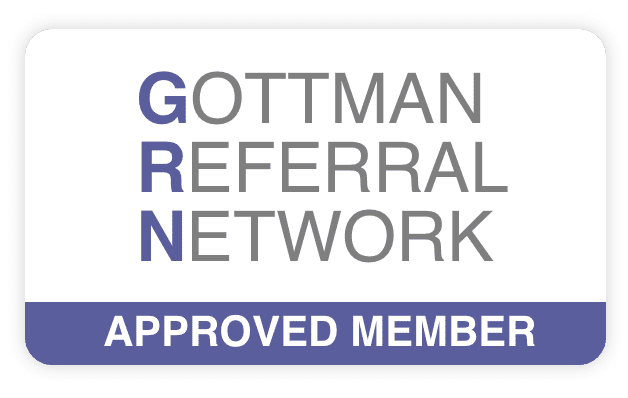Therapeutic Specialties
Specialties
Our therapeutic specialties include CBT & Exposure Response Prevention ERP, Gottman Method Couples Therapy, Accelerated Resolution Therapy ART, Emotionally Focused Therapy (EFT) for Couples and Families, Dialectical Behaviour Therapy DBT, Acceptance and Commitment Therapy ACT.
Click below to learn more about our therapeutic specialties:
Feeling trapped in your mind whether by constant worry, intrusive thoughts, or compulsive rituals can be exhausting. Cognitive Behavioral Therapy (CBT) with Exposure and Response Prevention (ERP) is a proven approach for anxiety, OCD, phobias, and panic. We’ll work together to face fears gently, step by step, so they lose their power over you. Instead of avoiding discomfort, you’ll learn how to navigate it with strength and awareness. Therapy will help you break free from mental loops, respond instead of reacting, and build confidence in your ability to manage anxiety. This isn’t about “thinking positively”, it’s about retraining your brain, building real-life coping tools, and reclaiming your peace. If you’re tired of feeling stuck or ruled by fear, there’s a path forward and we’ll take it together.
If communication has broken down, trust feels shaky, or you’re more like roommates than romantic partners, you’re not alone. The Gottman Method provides a research-based approach to restoring emotional connection, rebuilding intimacy, and resolving gridlocked conflict. Whether you’re struggling with infidelity, parenting disagreements, or feeling distant, we’ll focus on strengthening the foundation of your relationship: mutual respect, friendship, and emotional safety. You’ll learn practical tools to reduce defensiveness, express needs without blame, and listen with empathy. This approach goes beyond quick fixes. It’s about healing old hurts and building a stronger future together. No matter how far apart you feel, repair is possible. Therapy provides a space to reconnect and rediscover what initially brought you together.
If specific memories keep replaying or emotions from the past still feel raw, you may be living in a state of survival mode. Accelerated Resolution Therapy (ART) helps you process trauma, grief, or painful experiences without needing to retell every detail. Using eye movements and guided imagery, ART enables the brain to rewire the way distressing memories are stored, so they lose their emotional intensity. Most people feel noticeable relief in just a few sessions. It’s a gentle, effective option for PTSD, anxiety, loss, or images you can’t unsee. You remain in control throughout, and healing happens without re-traumatization. If talk therapy has felt overwhelming or hasn’t given you the results you hoped for, ART can offer a new way forward, one that feels safe, fast, and profoundly freeing.
When relationships are stuck in the same arguments or painful silences, it can feel like love is slipping away. Emotionally Focused Therapy (EFT) helps couples and families rebuild connection where it matters most, at the emotional level. Rather than just teaching communication skills, EFT enables you to understand the fears, hurts, and needs driving your conflict. You’ll learn how to create safety in your relationships, express vulnerability, and respond with care instead of defensiveness. Whether you’re facing infidelity, parenting stress, or long-standing tension, this approach helps you reconnect, repair, and move toward lasting closeness. EFT is about transforming disconnection into emotional intimacy, so each person feels heard, valued, and secure again.
If your emotions feel overwhelming, too big, too fast, or hard to control, DBT can help you build the skills to manage intense feelings and find balance. You’ll learn practical tools to navigate emotional highs and lows, improve relationships, and cope with distress without self-sabotaging. DBT combines mindfulness, validation, and behavioral strategies to help you remain grounded during times of chaos. It’s especially effective for people dealing with mood swings, self-harm urges, impulsive decisions, or a history of invalidation and trauma. In our work together, we’ll focus on emotional regulation, self-awareness, and building a life that feels more stable and meaningful. DBT helps you respond to life, not just react to it, with more clarity, calm, and choice.
You don’t have to silence your anxiety or bury your pain to move forward. Acceptance and Commitment Therapy (ACT) helps you make space for complex thoughts and emotions, without letting them control your life. Instead of avoiding discomfort, ACT teaches you how to accept it with compassion, clarify what matters most to you, and take small, meaningful steps toward the life you want. It’s beneficial if you’re stuck in self-criticism, perfectionism, or cycles of avoidance. ACT combines mindfulness with action, empowering you to break free from overthinking and reconnect with your values. You’ll learn to navigate challenges with more flexibility, self-trust, and purpose, not by changing who you are, but by becoming more fully yourself.
Need to Know More?
Considering therapy and want to learn more about our therapeutic specialties? Click below to connect with me and you are one step away from getting the right therapy and information.
